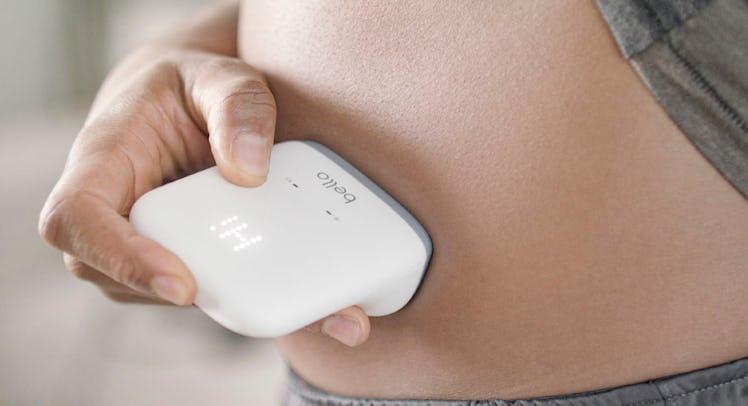This Gadget Will Tell You Exactly How Fat You Are
But is that a good thing?

If you already have a Bluetooth-enabled scale in your bathroom or a fitness tracker strapped to your wrist, you already know that the main function of personal health technology has been to collect information on how your body is functioning. Olive Healthcare, an AI-focused healthcare software startup, wants to add belly fat to the dashboard of physical metrics you can track.
Olive bills its brand-new Bello, just introduced at CES and on Indiegogo now, as “the world’s first portable digital belly fat scanner.” It’s a handheld device that uses near-infrared technology to provide an accurate measurement of abdominal fat by directly scanning the lipids around your midsection. This method is more accurate than the approximation provided by scales that estimate body fat percentage.
And while it might seem obvious whether or not you’re carrying around a little weight, knowing how much belly fat you have can be useful in evaluating your risk for metabolic syndrome, what the Mayo Clinic calls a “cluster of conditions that occur together, increasing your risk of heart disease, stroke and type 2 diabetes.”
After you hold the Bello against your stomach for a couple of measurements, the Bello app informs you what it thinks of your belly fat level and assigns you a score out of ten that’s meant to reflect your general health. The latter is meant to become more accurate as it aggregates daily fat measurements and activity data. The app also provides guidance on how to improve your scores.
That’s all fine and good, but any accounting of the Bello that doesn’t include its potential effect on one’s self-esteem would be incomplete. Belly fat isn’t just a metric of physical health, after all—it’s also a concern for social and cultural reasons. In a certain light, a device that tells you that you’re fat is depressing, a confirmation on your phone screen of the negative thoughts many folks have about their physique thanks to the often unrealistic standards of beauty perpetuated by our culture.
Proponents of the Bello would likely argue that being cognizant of your own health issues outweighs the negative feelings that might come with being confronted with it, and they might have a point. But if you’re carrying a spare tire and know it, it’s also hard to imagine what the Bello can tell you that you don’t already know.
This article was originally published on